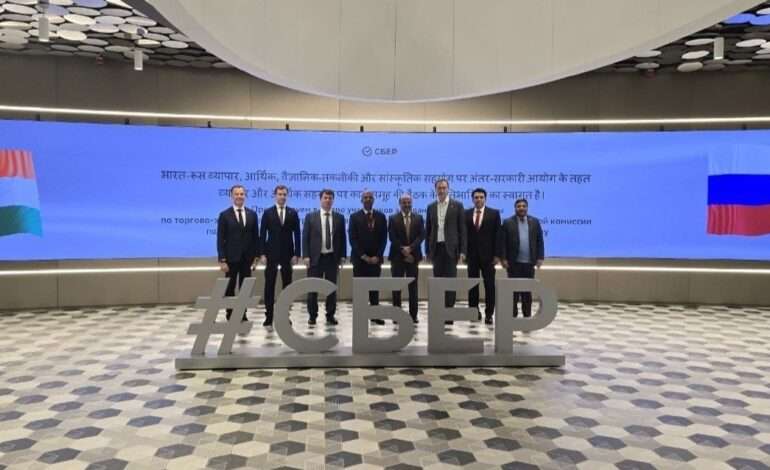
India and Russia set sights on deeper trade ties, enhanced market access
India has reaffirmed its commitment to expanding and deepening trade with Russia while proposing new confidence-building measures to unlock market access across key sectors. The renewed push came during the 26th meeting of the India-Russia Working Group on Trade and Economic Cooperation, held in Moscow under the Inter-Governmental Commission on Trade, Economic, Scientific, Technological and Cultural Cooperation (IRIGC).
Commerce Secretary Rajesh Agrawal met Russian Deputy Minister of Economic Development Vladimir Ilyichev to review the current state of trade, which has surged to more than double the $25 billion benchmark set by the two nations’ leaders in 2014. Both sides reiterated their shared ambition of reaching $100 billion in bilateral trade by 2030.
According to the Commerce Ministry, a forward-looking protocol to boost collaboration across multiple sectors was finalized and signed during the session. The discussions placed significant focus on agriculture, pharmaceuticals, engineering goods, and technology-driven services—sectors where both countries see strong potential for growth.
India pressed for expedited listing of Indian establishments with Russia’s Federal Service for Veterinary and Phytosanitary Supervision (FSVPS), especially in agriculture and marine product exports. A systems-based approach and predictable clearance timelines were highlighted as essential to reducing trade barriers. In pharmaceuticals, the two sides discussed creating a time-bound regulatory pathway built on registration reforms, regulatory reliance, and greater transparency.
The meeting also mapped India’s product strengths—including engineering goods, smartphones, motor vehicles, gems and jewellery, textiles, leather, and organic chemicals—which could support Russia’s efforts to diversify and de-risk its trade portfolio. Russian entities were also encouraged to increase procurement from India’s fast-growing services ecosystem.
With over 1,700 Global Capability Centres (GCCs) employing nearly 1.9 million professionals, India positioned its GCC network as a ready platform for Russian companies seeking to enhance business continuity, cybersecurity, design, analytics, and shared services. Officials noted that such partnerships could create more resilient supply chains in both goods and services.
The Indian side further emphasized opportunities for greater mobility of skilled professionals in IT-BPM, healthcare, education, and creative services to address labour shortages in Russia. Both governments also agreed to explore payment solutions tailored for businesses—particularly MSMEs—to ensure smoother trade transactions amid evolving geopolitical challenges.
The meeting concluded with a shared commitment to strengthen economic engagement, remove market-access barriers, and pursue long-term trade diversification aligned with the $100 billion goal.